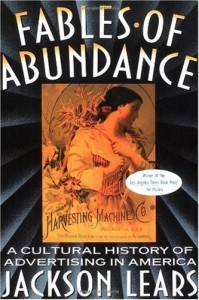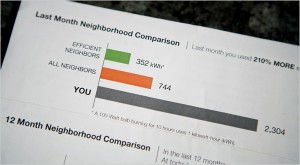The other week, I blogged that renewable energy alone will not be able to compensate for an anticipated precipitous decline in world oil supply. We said we need to invest in energy efficiency to bridge the gap. This week, I look at the challenges of becoming a more efficient world, starting with you and me.
 In the mind of the average consumer the image of efficiency and its close cousin conservation is one of deprivation and austerity. Certainly not the stuff that made America great! America was built on fables of abundance.
In the mind of the average consumer the image of efficiency and its close cousin conservation is one of deprivation and austerity. Certainly not the stuff that made America great! America was built on fables of abundance.
But doesn’t efficiency have its own attractive tale to tell? Take the iPad, for instance. Turns out it’s really energy efficient. Among the many ballyhooed features of the iPad, right up there with the sexy interface, is its amazing battery life. Wait – praise for efficiency? Sure, because that’s efficiency delivering something people really want; truly mobile computing. After all, who wants a mobile device that needs to be tethered to an outlet? The iPad isn’t just slick fun – it’s slick , fun, freedom!
The trick is to find similar gut-level needs that, “marketed” effectively, can motivate us to adopt ways of living that reduce our spiraling energy demand and offset some of the anticipated energy gap mentioned in my last post. So, what gut-level need can energy efficiency deliver?
How about control for starters? People like the ideas of self-sufficiency and self-determination. Especially in uncertain times, feeling like you have a firm grip on your ship’s tiller is empowering. Technologies and initiatives that increase energy efficiency could be positioned as delivering personal control – a bulwark against the uncertainties of see-sawing gasoline prices, rising utility bills, increased commuting costs and carbon taxes.
Or, what about status? People like to stand out, get noticed, feel like they’re ahead of the pack in some way. When gasoline breached $4 a gallon in the US back in 2008, a new breed of braggart emerged on the American car scene – the hypermiler. In the world of hypermiling, status wasn’t about horsepower and 0-60 times. It was all about miles-per-gallon. Want to be king of the hypermile hill? Drive smarter. Right now, utilities are tapping into that same competitive quest for eco status by sending monthly statements that show how your energy use stacks up to similar homes in your neighborhood. (It’s anonymous.) Many were surprised that the odd-cool look of the Prius sold so well even before the spike in gas prices. They assumed it would be best to camouflage a hybrid under the wrappings of a more traditional looking car body – like Honda did with its hybrid Civic. But early adopters often want to stand out. Why spend the extra money on planet and climate saving efficiency if nobody notices? The same principle can be applied well beyond the automotive segment.
 And there are many more human needs and wants that efficiency can be paired with (how about efficiency gadgets for that never ending human need for novelty?), but the point is we need to harness self-interest, not pretend it doesn’t exist. We start by choosing and creating the right words, imagery and ideas that motivate action and behavior. Efficiency and conservation have been too often aligned with abstractly noble or utilitarian sentiments; saving the planet or perhaps saving some money (eventually). Getting an efficiency mindset to really take hold demands a belief that it can deliver something personally valuable.
And there are many more human needs and wants that efficiency can be paired with (how about efficiency gadgets for that never ending human need for novelty?), but the point is we need to harness self-interest, not pretend it doesn’t exist. We start by choosing and creating the right words, imagery and ideas that motivate action and behavior. Efficiency and conservation have been too often aligned with abstractly noble or utilitarian sentiments; saving the planet or perhaps saving some money (eventually). Getting an efficiency mindset to really take hold demands a belief that it can deliver something personally valuable.
By building more compelling imagery – starting with us as marketers and reaching all the way up to the Marketer in Chief – efficiency has as much, possibly more, intrinsic appeal as alternative energy. After all, lots of the alternative energy stuff is “five to 10 years away” and seemingly always will be (where is my hydrogen economy?). Insulation, smart glass, telecommuting, car sharing, geothermal heat pumps, new urbanism and smart planning? That’s efficiency, and that’s here, now ready to deliver more control in uncertain times, status among peers, novelty and more. So, if you’re starting out in a quest for green market dominance with a venture that’s efficiency or conservation-focused, look to spin a new fable of abundance based on the self-interest needs or wants that your product or service can deliver.